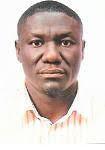Department of French
vision
The Department of French is dedicated to promoting the study and appreciation of French language and literature, fostering cultural awareness, and developing linguistic and critical thinking skills.
mission
To become a leading centre for French language and literature studies, recognised for academic excellence, innovative research, and cultural exchange.
Introduction
The Department offers a four-year programme (three-year for Direct Entry students) leading to B.A. (HON) French Degree.
Entry Requirements
To qualify for admission into this programme, a candidate must possess at least five credits at School Certificate or G.C.E. Ordinary Level, three of which must be in French, English Language and Mathematics. Direct Entry candidates who have good passes in at least two Advanced Level/N.C.E papers (one of which must be in French), or candidates with equivalent qualifications from recognized institutions could be admitted to a 3-year programme and join those on the four-year programme at the second year level. In addition, Direct Entry candidates must satisfy U.M.E. requirements or have “O” Level credits or equivalent in at least three other subjects. Candidates with five credits at “O” Level who have Certificates in French from recognized institutions could also be admitted for a four-year programme.
Registration
For each year of study, a student shall register for a stipulated number of credits ranging from a minimum of 30 to a maximum of 48, which should be spread out equally between both semesters i.e. 15 – 24 per semester. A credit is defined as representing contact per hour/week/semester. In addition to compulsory courses, students shall be required to take a minimum of specified elective courses within or outside the Department. The Academic counselors shall guide the students as to what courses (core and elective) are available and desirable for each year of study. In addition to the above, First Year and Direct Entry candidates must register for the courses in General Studies which now carry credit load like other courses and which must be passed by all students in order to qualify for a degree from the University and Department.
Guidelines for Registration of Courses Are as Follows:
- Registration for both semesters of each session must be done within the first two weeks of the first semester or as may be stipulated by the University. Late registration attracts penalty.
- Registration of fresh students begins with the checking of their entry qualifications.
- All students who have met the University and Departmental admission requirements then proceed to pay the prescribed fees into the University’s specified bank account as stated in the invoice obtainable for the website. The payment bank teller must be taken to the Bursary Department for collection of official receipt.
- After payment, the student will be issued with a transaction I.D/code with which to continue with registration.
- There are two semesters in an academic year; courses are organized in semesters.
- Courses are weighted according to their credit units or credit load. The credit unit indicates the number of hours a course is taught in a week. For example, a 2-credit-unit course is taught two hours in a week while a 3-credit-unit course takes three hours in a week.
- Registration is online.
- Students are to consult their academic advisers before filling in the courses and other information online.
- In a semester, a minimum of 15 and a maximum of 24 credit units may be registered.
- Before filling in the courses, students are advised to consult the handbook for the specified courses for each semester and session.
- Students are to download the registration form from the University website after supplying necessary information and take the form to designated officers for endorsement.
- If a student has any reason to add or drop any course (s) after the submission of course registration form, the student should discuss it with the academic adviser and get clearance from the Head of Department.
- Any course failed or carried over must first be registered for before the core courses for the current session.
- Course registration form must be signed by the designated officers.
- Each student is advised to keep a copy of the registration form and other relevant documents in his/her personal file.
Casimir Houenon
H.O.D French
Regular and prompt lecture attendance is mandatory. Any student who is not in class 15 minutes after the scheduled time of the lecture shall be deemed to be absent from the lecture. At least 70% of attendance is required in all cases, lectures, tutorials, laboratories, etc, to qualify to sit for semester examinations.
A student may add or drop a course by obtaining and completing the ADD and DROP form provided the semester in which the course is being offered has not gone beyond 50% of the weeks allocated in the University calendar.
Any student who withdraws from a course without following due process as regards ADD and DROP Form shall be deemed to have failed the course. All ADD and DROP Forms must be duly signed by the designated officers and copies submitted to the Level Adviser, HOD, and MIS. Similarly, any student who sits for an examination in a course he/she has not registered for shall not earn the course.
Examinations are normally held at the end of each semester. Students are required to download their examination cards from the University website, two weeks to the commencement of the examinations. The card shall show the candidate’s name, matriculation number, picture and courses registered. Each student must present his/her identity card and examination card before being allowed into the examination hall.
Other conditions for examination which are set out in full in the University Examination Regulations include:
- Examinations are conducted in accordance with regulations approved from time to time by the Senate and indicated in the University Academic Calendar for the session.
- Every course shall be examined during the academic year in which it is taken. To qualify for an end of semester examination in a course, candidates must have registered for the course and attended up to 70% of the lectures, tutorials, etc.
- Each course will be examined in the following order: Continuous Assessment (C.A): 30%; and End of Semester Examination: 70%.
- Each student must go to the examination venue with the University identity card and examination clearance card.
- A student shall be at examination room at least thirty minutes before the advertised time of the examinations. A student is required to supply his own pens, pencils, ruler etc.
- A student may not be admitted to the examination hall after thirty minutes of the start of the examination. However, an invigilator may at his/her discretion admit the student if he or she is satisfied that the student had good reasons for lateness. The invigilator shall report the circumstances to the Faculty Examination Officer who shall inform the Chief Examiner.
- A student may only be permitted by an invigilator to leave the examination room during the course of an examination provided that he/she has:
- Used up 1/3 of the allotted time;
- Handed over his/her script to the invigilator.
A student who leaves the examination room shall not be re-admitted unless throughout the period of his absence he has been continually under the supervision of an Invigilator or Assistant Invigilator.
- A student shall bring his/her examination card and identification card to each examination and display them in a prominent position on the desk.
- Each student shall sign an attendance list, prepared with number and name which shall be collected by the invigilator at the end of examination.
- During an examination, no student shall speak to any other student or make any noise or disturbance.
- No book, printed paper, programmemed calculator, GSM (Handset), written document or unauthorized aid may be taken into any examination by any student, except as may be stated in the rubrics of any examination paper.
- A student is required to deposit any handbag, briefcase, etc, at the Invigilator’s desk or a space provided for the purpose before the start of an examination.
- A student must not, during examination, directly or indirectly give assistance to any other student or permit any other student to copy from, use his/her papers during examinations. Similarly, a student must not directly accept assistance from any other student or use any other student’s paper.
- If any student is suspected or found to be infringing upon the provisions above, or in any way cheating or disturbing the conduct of the examination, the student concerned shall be made to fill Examination Misconduct Form, a report shall be made as soon as possible to the Faculty Examination Officer and the Dean. The Dean will cause the circumstance to be investigated by the Examination Misconduct Committee, and take such steps as may be necessary for the smooth conduct of the examinations. The student concerned should be allowed to continue with the examinations. The examination Misconduct Committee shall subsequently recommend to the Faculty Board and the Senate appropriate disciplinary actions.
- A student shall write his/her examination number, not his/her name, clearly in the space provided for such at the top of the cover of every answer booklet
- The use of scrap paper is not permitted. All rough work must be done in the answer booklet and crossed neatly, or in supplementary answer booklet which must be submitted to invigilator. Except for printed question paper, a student may not remove from the examination room or mutilate any paper or other materials supplied.
- At the end of time allotted, candidates shall stop writing when instructed to do so and shall submit their exam booklets as directed by the Invigilator.
- Failure in any course shall be recorded as such and can only be redeemed by retaking and passing the examination in that course.
- A student failing an examination shall be allowed to repeat the failed course(s) during the next session provided the maximum load does not exceed 24 credit units per semester.
Department of french COURSE CONTENTS (CCMAS)
Department of french COURSE CONTENTS (BMAS)
NB: 300 level courses will be taken at The Nigeria French Language Village, Badagry.
Casimir Houenon
HoD French
1. Bachelor of Arts (BA) in French: A comprehensive program covering French language, literature, and culture.
2. Specialisations: Students can choose to specialise in French language and linguistics, French literature, or Francophone studies.
1. Master’s of Arts (MA) in French: A research-based program designed for students who wish to pursue advanced studies in French language and literature.
2. Doctor of Philosophy (PhD) in French: A doctoral program focused on original research in French language and literature.
Research Focus Areas
French Language and Linguistics
French Literature and Criticism
Francophone Studies and Culture
French Language Teaching and Learning
Our Experts

Prof. Simon Adewale Ebine
PhD Negro-African Literature in French (Ahmadu Bello University, Zaria, Nigeria) Master's of Arts French (University of Lagos, Nigeria) Bachelor of Arts (BA) French/Portuguese Degree, (Obafemi Awolowo University, Ile-Ife, Nigeria)
AREAS OF SPECIALISATION
- Negro-African Literature in French

Dr. Ahmed Eleojo Musa
PhD Franco-phone African Literature (Ahmadu Bello University, Zaria, Nigeria) Master's of Arts French Literature (Ahmadu Bello University, Zaria, Nigeria) Bachelor of Arts (BA) French (Ahmadu Bello University, Zaria, Nigeria)
AREAS OF SPECIALISATION
- French, Francophone and Translation

Aisha Ibrahim
Master's of Arts French (Bayero University, Kano, Nigeria) Bachelor of Arts (BA) French (Ahmadu Bello University, Zaria, Nigeria)
AREAS OF SPECIALISATION
- Language
Contact Information
Faculty of languages and communication studies,
Ibrahim Badamasi Babangida University
PMB 11, Lapai, Niger State, Nigeria
Email: french@ibbu.edu.ng